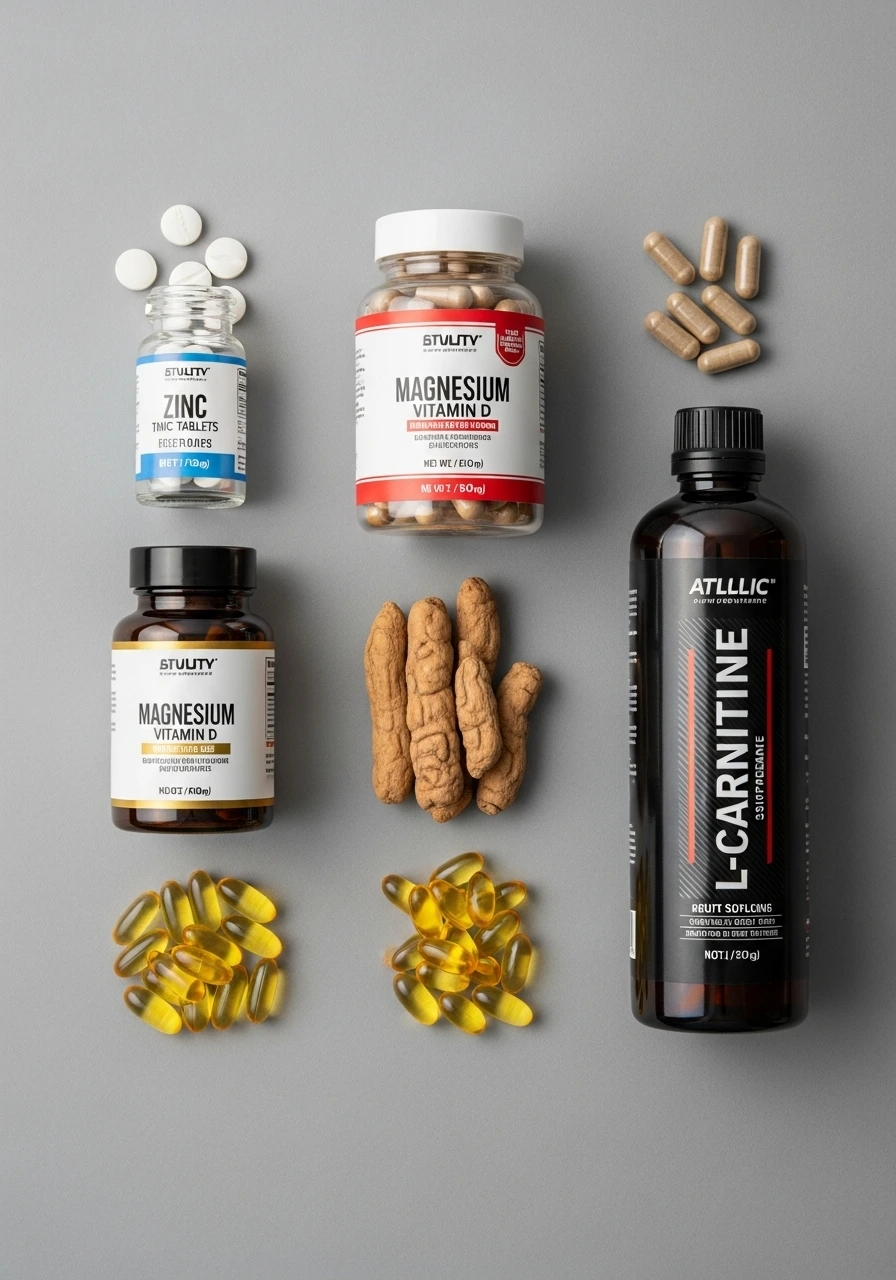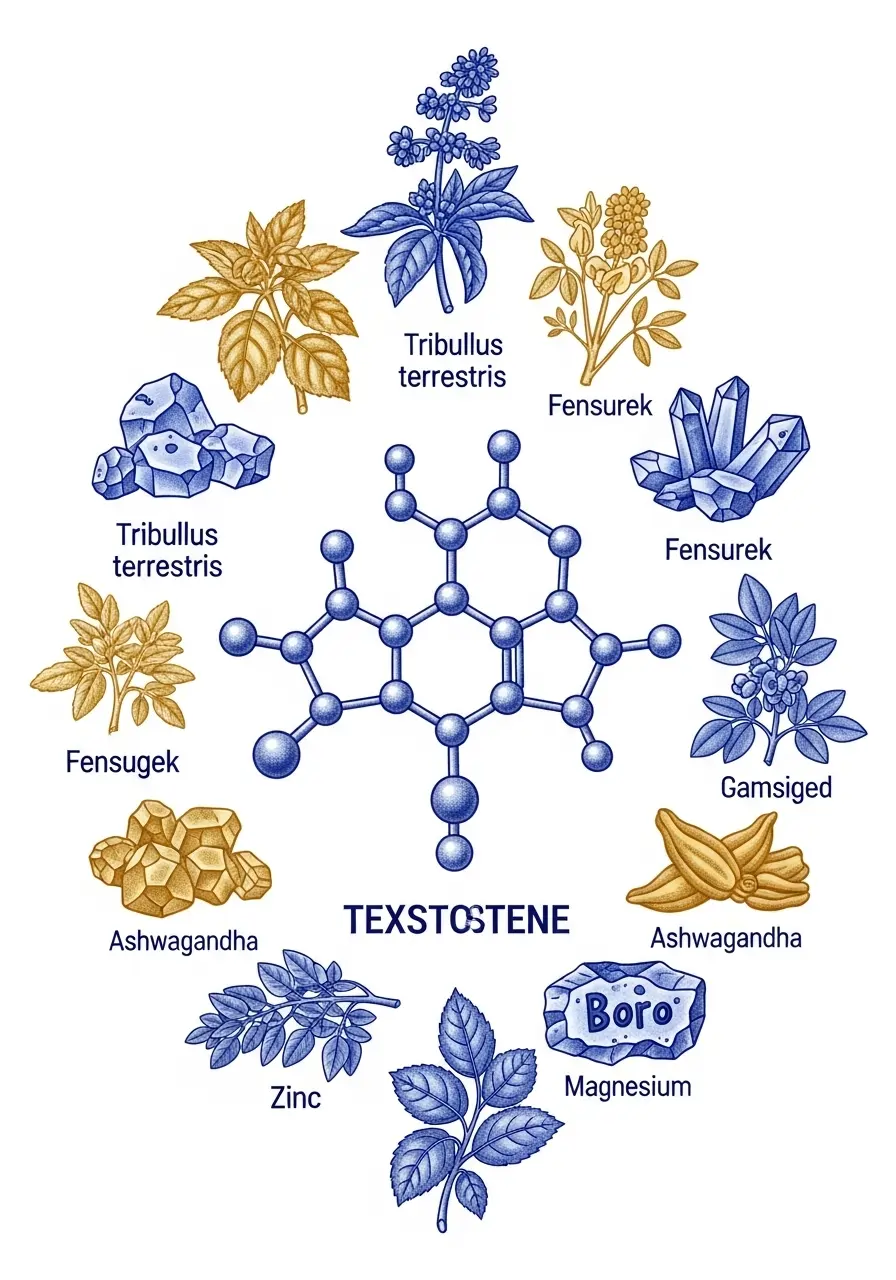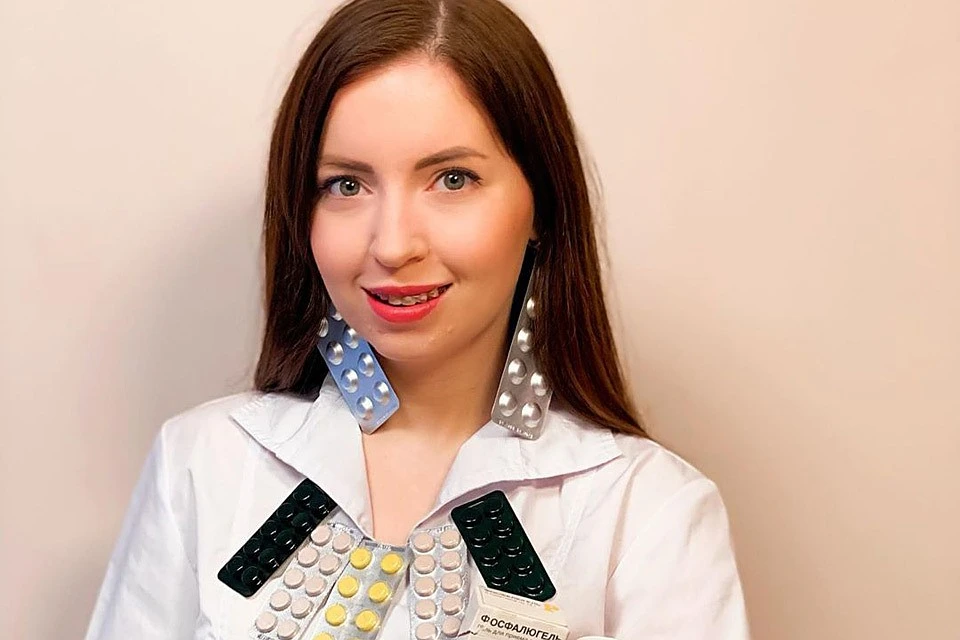

After the age of 40, men’s testosterone levels naturally decline by approximately 1–2% per year, which manifests as reduced energy, muscle mass, libido, concentration, and mood.
This is not a pathology but a part of the aging process — however, hormonal balance can be supported naturally using nutraceuticals that influence the hypothalamus–pituitary–gonadal axis and stress–cortisol–testosterone axis.

Modern studies confirm that nutrients such as zinc, magnesium, boron, ashwagandha, L-carnitine, D3 can stimulate natural androgen synthesis, reduce oxidative stress, and improve quality of life without hormone therapy.
Main Factors of Testosterone Decline
| Factor | Mechanism | Result |
|---|---|---|
| Chronic Stress | Excess cortisol suppresses GnRH | Reduced testosterone production |
| Micronutrient Deficiency | Lack of zinc, magnesium, boron | Disruption of androgen synthesis enzymes |
| Low-grade Inflammation | Cytokines (IL-6, TNF-α) block receptors | Reduced cellular sensitivity to hormones |
| Sleep Deprivation / Obesity | Decreased luteinizing hormone secretion | Reduced androgens, increased estrogens |
| Reduced Mitochondrial Activity | Less energy for steroidogenesis | Fatigue syndrome, apathy |

Key Nutrients to Support Testosterone
Zinc — a key cofactor for the enzyme 17β-hydroxysteroid dehydrogenase, involved in testosterone synthesis.
This micronutrient supports the immune system, protein synthesis, and tissue healing. Best absorbed in picolinate or citrate forms.
Magnesium — helps lower cortisol levels, improves sleep quality, and supports vitamin D absorption.
It participates in hundreds of enzymatic reactions, influencing muscle function and energy metabolism.
Optimal forms for supplementation are magnesium citrate or glycinate, which are well absorbed and gentle on the stomach.
Boron — a micronutrient that lowers sex hormone-binding globulin (SHBG), thereby increasing free testosterone levels.
It has antioxidant and anti-inflammatory properties and supports bone tissue. Best absorbed as boron citrate in a dose of 3–6 mg per day.
Ashwagandha (Withania somnifera) — an adaptogen that reduces cortisol, normalizes the hypothalamic-pituitary-gonadal axis, and stimulates luteinizing hormone (LH) secretion.
Positively affects sperm quality, energy levels, and endurance. Most effective standardized extracts are KSM-66 and Sensoril.
Vitamin D3 — activates androgen receptors and supports physiological testosterone levels. Additionally, it is important for bone health, nervous system function, and emotional well-being. Recommended daily dose: 2000–4000 IU.
L-carnitine — participates in the energy metabolism of Leydig cells, which synthesize testosterone, and increases sperm motility.
This improves reproductive function and endurance. Most active forms are L-Carnitine tartrate and acetyl-L-carnitine.
Optimal Nutrient Combinations for Different Conditions
Chronic Stress and Fatigue.
When the body is under constant strain, energy, libido, and concentration often decline. In such cases, combining ashwagandha, magnesium, and vitamin D3 is effective.
Ashwagandha helps reduce cortisol levels, magnesium stabilizes the nervous system, and D3 supports hormonal balance. As a result, mood improves, work capacity is restored, and stress resilience increases.
Low Testosterone Levels in Lab Tests.
Symptoms may include chronic fatigue, abdominal fat accumulation, and decreased motivation.
A zinc + boron + L-carnitine complex stimulates free testosterone production, improves spermatogenesis and metabolism. Within a few weeks of use, energy, tone, and endurance increase.
Post-illness and Rehabilitation Period.
After infections or surgery, muscle weakness and fatigue often occur.
Combining L-carnitine, vitamin D3, and magnesium helps restore cellular energy, support muscle function, and regain physical activity. This complex promotes faster recovery and increased endurance.
Sedentary Lifestyle and Metabolic Syndrome.
With physical inactivity, weight gain, and reduced insulin sensitivity, a combination of berberine, zinc, and vitamin D3 is effective. Berberine improves glucose metabolism, zinc normalizes hormonal balance, and D3 supports endocrine system function.
This complex helps reduce body weight, increase insulin sensitivity, and improve overall well-being.
Questions & Answers
1. Can ashwagandha be taken continuously?
Yes, but it is better to take it in 8–12 week courses with breaks.
2. Does zinc help with hair loss?
Yes, if the cause is hormonal imbalance or micronutrient deficiency.
3. Does alcohol affect testosterone?
Yes, it raises estrogen levels and depletes zinc stores.
4. Is magnesium needed if sleep is good?
Yes, magnesium affects not only sleep but also steroid synthesis.
5. Is this program suitable for men over 50?
Yes, but with individualized dosing and lab monitoring.
Conclusions
Hormonal balance in men is not just about testosterone but also about energy stability, stress resilience, and metabolic health.
Nutraceuticals help maintain natural androgen levels, reducing the impact of stress, micronutrient deficiencies, and age-related changes.
References
-
Mahdi, A. A. et al. Journal of Ethnopharmacology, 2024 — “Ashwagandha and male reproductive health.”
-
Pilz, S. et al. Hormone Molecular Biology and Clinical Investigation, 2023 — “Vitamin D and testosterone.”
-
Chasapis, C. T. Nutrients, 2024 — “Zinc and male hormonal balance.”
-
Maggio, M. et al. Frontiers in Endocrinology, 2025 — “Boron as a trace element modulator of testosterone.”
-
Di Luigi, L. et al. Metabolism, 2024 — “L-carnitine in male fertility and mitochondrial function.”




